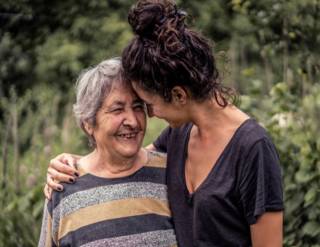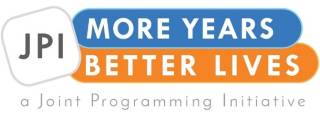EUROCARE : Inequalities in informal caregiving over the adult life course in Europe
Project aim
To investigate the impact of caregiving on employment, social participation and health (mental and physical), as well as gender, socioeconomic and ethnic differences in these impacts across European countries.
We adopt a life course perspective to focus on providing care at different stages of the life course: early, mid- and later-life adulthood.

- Work Package 1: Young Adult Carers
Aim: To investigate the impact of providing care in early adulthood on key life course transitions to employment and family life, educational attainment and health.
Research questions:
1. Is providing care in early adulthood linked with reduced educational and socioeconomic attainment, weaker ties to employment, a reduced likelihood of partnership, reduced social networks and contacts, or poor mental health or wellbeing compared with young adults who do not provide care?
2. Do the consequences of providing care in early adulthood vary by the intensity of care provided?
3. Do the consequences of providing care in early adulthood vary by gender, ethnicity, or socioeconomic origins?
4. Do the consequences of caring in early adulthood, or inequalities in these associations, differ by country context?Data sets:
UK Household Longitudinal Study
Germain Socio-economic Panel Study
European Health Interview Study- Work Package 2: Mid-life Carers
Aim: To investigate the impact of providing care in mid-life on employment and broader social participation, health and wellbeing, as well as differences by intensity and duration of care, socioeconomic and household circumstances, gender, ethnicity and country context.
Research questions:
1. Are there inequalities in who provides care in mid-life by gender, income, work status or hours, or ethnicity? Are inequalities in midlife caregiving even greater during the Covid19 pandemic? Do prior life course employment trajectories predict who cares in mid-life and does this differ for men and women?
2. Is caring in mid-life linked with subsequent reduced working hours or likelihood of exiting the labour market or taking early retirement, reduced social participation, or poor health and wellbeing compared with those no providing care and independent of pre-care circumstances?
3. Are there differences in the consequences of care in mid-life by intensity or duration of care provided, by number and ages of children in the household (sandwich care), household income, ethnicity, partnership status or social support and networks?
4. Do the consequences of mid-life caring or inequalities in these effects differ by country context?Data sets:
UK Household Longitudinal Study
Germain Socio-economic Panel Study
European Health Interview Study
English Longitudinal Study of Ageing
Survey of Health and Retirement in Europe- Work Package 3: Later life Carers
Aim: To focus on life course inequality in relation to who becomes a carer and the consequences of caregiving in later life, country differences in the circumstances of older carers in relation to macro-level indicators of state care regimes, and caring in the context of the Covid19 epidemic.
Research questions:
1. Is life course accumulation of socioeconomic disadvantage an important predictor of caregiving in later life or are more proximal circumstances more important? Do socioeconomic inequalities in caregiving vary by gender?
2. Is caring in later life associated with retirement timing, reduced social participation, or reductions in wellbeing, health and functioning independent of pre-care circumstances?
3. Does the impact of caring on health and social outcomes vary by the intensity of care and characteristics of the care recipient or the gender and socioeconomic circumstances of the carer?
4. Is informal caring in later life increasing in the Covid19 pandemic and what are the extent of inequalities in who is meeting that need?
5. Do inequalities in the impact of caring on health and social outcomes vary by country based on macro-level indicators of country care regime?Data sets:
English Longitudinal Study of Ageing
Survey of Health, Ageing and Retirement in Europe (SHARE)- Work Package 4: Time Trends In Caregiving
Aim: To identify changes over time in the life stage of carers in Europe, country-level differences in these changes, and whether changes have been greater for particular socioeconomic or ethnic groups.
Research questions:
1. Has informal caring changed over time for carers in different life stages, such as young adult carers, and has there been change in the context of Covid19?
2. Have any increases in caring by life stage differ by gender, ethnicity, or socioeconomic circumstances?
3. Are there country differences in these time trends, or gender, socioeconomic or ethnic inequality in who provides informal care across Europe?Data sets:
European Health Interview Survey
England & Wales Census- Work Package 5: Policy Recommendations
Aim: will develop policy recommendations for addressing the specific support needs of carers across the life course to ensure maintenance of good health, work participation, economic and psychological wellbeing, and social inclusion.
Research questions:
1. What welfare models and policy supports best facilitate carers to maintain employment and social connection?
2. What policy support would best support carers’ physical health and psychological wellbeing at different life stages?
3. Do policy recommendations apply equally across Europe or is there a need for more individualised recommendations due to cultural differences?
 Close
Close


